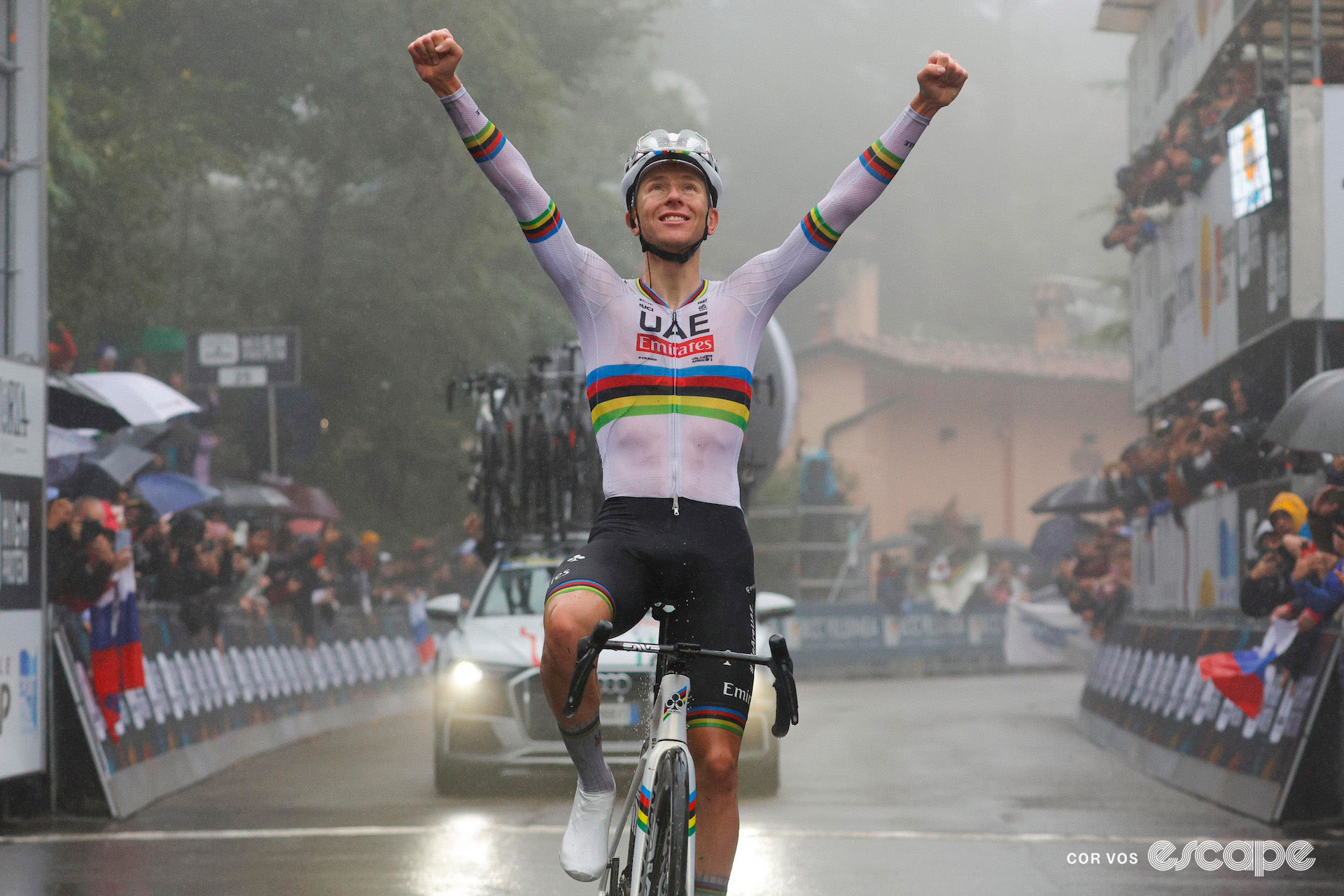Did we do a good job with this story?


By winning on debut as world champion, Pogačar joins an elite club that includes Tom Boonen, Abraham Olano, Francesco Moser and – of course – Eddy Merckx.
Tadej Pogačar (UAE Team Emirates) wins the 2024 Giro dell'Emilia in the rainbow jersey of world champion. Photo: © Cor Vos